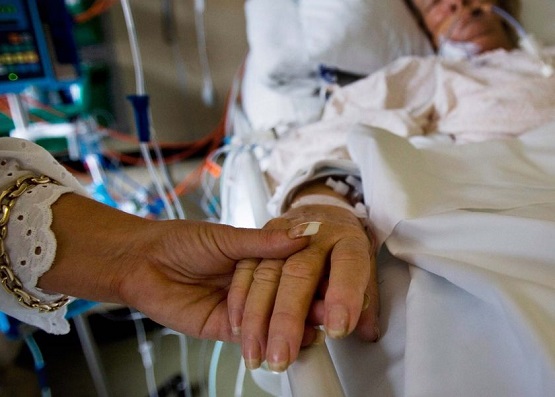Health Canada recently released the Fourth Annual Report on Medical Assistance in Dying (2022). The data is gathered from the reports submitted by the medical or nurse practitioners who carried out the death. There is no requirement that a “third” party or neutral person witness the death or submit the reports to ensure their accuracy.
While waiting for the official report to be released, I had estimated that there would be approximately 13,200 reported assisted deaths. My estimate was close.
The report (2022) indicates that there were: 13,241 assisted deaths in 2022 up from 10,092 in 2021, 7611 in 2020, 5665 in 2019, 4493 in 2018, 2838 in 2017 and 1018 in 2016.
The 2022 report also indicates that the number of assisted deaths increased by 31.2% representing 4.1% of all deaths .
The total of number of reported assisted deaths in Canada from legalization to December 31, 2022 was 44,958.
Click here to sign up for pro-life news alerts from LifeNews.com
The report indicates that euthanasia represented 3.3% of all deaths, which was up from 2.5% in 2021. The data indicates a big difference in the percentage of euthanasia deaths between provinces. According to the data the percentage of all deaths that were euthanasia increased in all provinces notably:
- Quebec: 6.6% in 2022 up from 4.7% in 2021.
- British Columbia: 5.5% in 2021 up from 4.8% in 2021
- Ontario: 3.2% in 2022 up from 2.7% in 2021.
- Newfoundland was the lowest with 1.5% in 2022 up from 1.2% in 2021.
The report indicated that due to the passing of Bill C-7 in March 2021, 3.5% of the assisted deaths were people whose natural death was not reasonably foreseeable.
How did Bill C-7 expand eligibility for euthanasia in Canada?
This is the Second Health Canada MAiD report since the federal government expanded eligibility for euthanasia (MAiD) in March 2021 by passing Bill C-7.
- Bill C-7 removed the requirement that a person’s natural death be reasonably foreseeable to qualify for assisted death. Therefore, people who are not terminally ill could die by euthanasia.
- Bill C-7 permitted a doctor or nurse practitioner to lethally inject a person who is incapable of consenting, if that person was previously approved for assisted death. Therefore, incompetent people can die by euthanasia in Canada.
- Bill C-7 waived the ten-day waiting period if a person’s natural death is deemed to be reasonably foreseeable. Thus, a person could request euthanasia on a “bad day” and die the same day.
- Bill C-7 created a two-track law. A person whose natural death is deemed to be reasonably foreseeable has no waiting period, while a person whose natural death is not deemed to be reasonably foreseeable has a 90-day waiting period before being killed by lethal injection.
- Bill C-7 approved euthanasia for mental illness alone that will go into effect on March 17, 2024.
The data indicates that there were 16,104 written requests for MAID in 2022 up from 12,286 in 2021. The majority of the written requests (13.102 or 81.4%) resulted in an assisted death. There must be some missing reports. The data states the 13,102 written requests resulted in euthanasia, but there were 13,241 reported euthanasia deaths.
There were 3002 requests that resulted in an outcome other than MAID.
- 298 individuals withdrew their request (1.9% of written requests);
- 560 individuals were deemed ineligible (3.5% of written requests); and
- 2144 individuals died prior to receiving MAID (13.3% of written requests).
It is concerning that only 3.5% of the written requests were deemed ineligible. The Netherlands and Belgium have higher rates of people being deemed ineligible.
Reasons for requesting euthanasia.
The main reasons for requesting euthanasia were
- the loss of ability to engage in meaningful activities (86.3%),
- loss of ability to perform activities of daily living (81.9%), and
- inadequate control of pain, or concern about controlling pain (59.2%).
It is concerning that 2264 people (17.1%) died by euthanasia based on loneliness and isolation. Many people with significant medical conditions also live with loneliness and isolation. Social isolation and loneliness require a compassionate caring community, not death by lethal injection.
Inadequate control of pain or concern about controlling pain were reasons for 57.6% of the requests for euthanasia, and yet the report states that 80.7% of the people who requested euthanasia were “receiving palliative care.” Being enrolled in palliative care and receiving palliative care are different. A study needs to be done to determine how many people who died by euthanasia were actually receiving palliative care.
The federal euthanasia report essentially provides basic data that is not analysed.
Sadly, Canada has quickly become the most permissive euthanasia regime in the world. Further to that, a Canadian government committee report recommended expanding the law to include euthanasia for children, “mature minors,” and euthanasia for incompetent people by advanced request.
Recent stories indicate that Canadians are now dying by euthanasia for reasons of poverty, homelessness, disability, a lack of access to medical treatment and mental illness.
We need a caring community, not a killing community.
LifeNews.com Note: Alex Schadenberg is the executive director of the Euthanasia Prevention Coalition and you can read his blog here.








